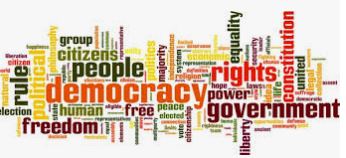South Sudan has faced critical economic and policy decisions amidst political crises since gaining independence from Sudan in 2011. The suffering of the South Sudanese people since the 2013 war and the absence of democratic governance deeply concern me.
Over 500,000 South Sudanese have tragically lost their lives due to the greed and self-serving actions of the SPLM leaders. This conflict is driven by the pursuit of wealth and power, rather than the well-being of the citizens. The leaders’ disregard for the rights of the people is evident in their actions. As Apostle Paul stated, we should not only focus on our interests, but also consider the well-being of others. The warnings about greed and selfishness for power and wealth in the Bible, such as in the book of Luke 12:13-21, are relevant to these leaders.
South Sudanese leaders and policymakers must make smarter choices to enhance the prospects of successful democratization. Several factors are crucial for the success of economic, democratic, and political transitions in South Sudan. States plagued by armed conflict seldom transition to democracy and often end up swapping one dictatorship for another. Peaceful protests, as seen in Sudan, offer a better chance and significant progress towards laying the foundation for democratic change. The ongoing economic crisis and escalating armed conflict in South Sudan could potentially precipitate the downfall of the authoritarian regime. The establishment of strong institutions based on a federal system is imperative for sustaining democracy. As democracy takes root and promises political freedom, expectations for improved economic and social opportunities among the population will rise.
A new democratic republic must prioritize social inclusion and elevate living standards nationwide. Upholding the rule of law and implementing radical reforms to ensure a fair economic and political landscape, protect citizens’ core rights regardless of tribal affiliations, and combat corruption are essential in maintaining government accountability and public confidence during turbulent transitions. South Sudan should cultivate bilateral relationships with supportive neighbors and external forces to aid in the nation’s democratic transition and bolster economic ties. Offering technical assistance and exerting “constructive political pressure” can help internal reforms. Negative influences like Uganda may fuel armed conflict and authoritarian rule in South Sudan for personal gain, undermining democratic progress by fostering power struggles, corruption, and autocratic setbacks.
To achieve democratic progress in South Sudan, citizens must reject tribal politics. Tribalism fuels violence and a dangerous “ends justify the means” mentality. South Sudan’s potent tribalism elevates certain groups, as tragically seen in 2013. South Sudanese must actively combat tribalism to build a more peaceful, inclusive society. A united citizenry is crucial for meaningful change. Similarly, opposition groups must unite, prioritizing national interests over internal divisions—a failure that weakened resistance to Kiir’s authoritarian rule. Broad support for federalism reflects a desire to decentralize power, improve governance, and prevent autocracy. We will continue advocating for democratic change, the rule of law, and essential reforms: safety, security, lasting peace, stability, and the dignified return of displaced citizens.
The author, Jwothab Othow, is a South Sudanese citizen, activist, and critic of the South Sudan government.
The views expressed in ‘opinion’ articles published by Radio Tamazuj are solely those of the writer. The veracity of any claims made is the author’s responsibility, not Radio Tamazuj.




